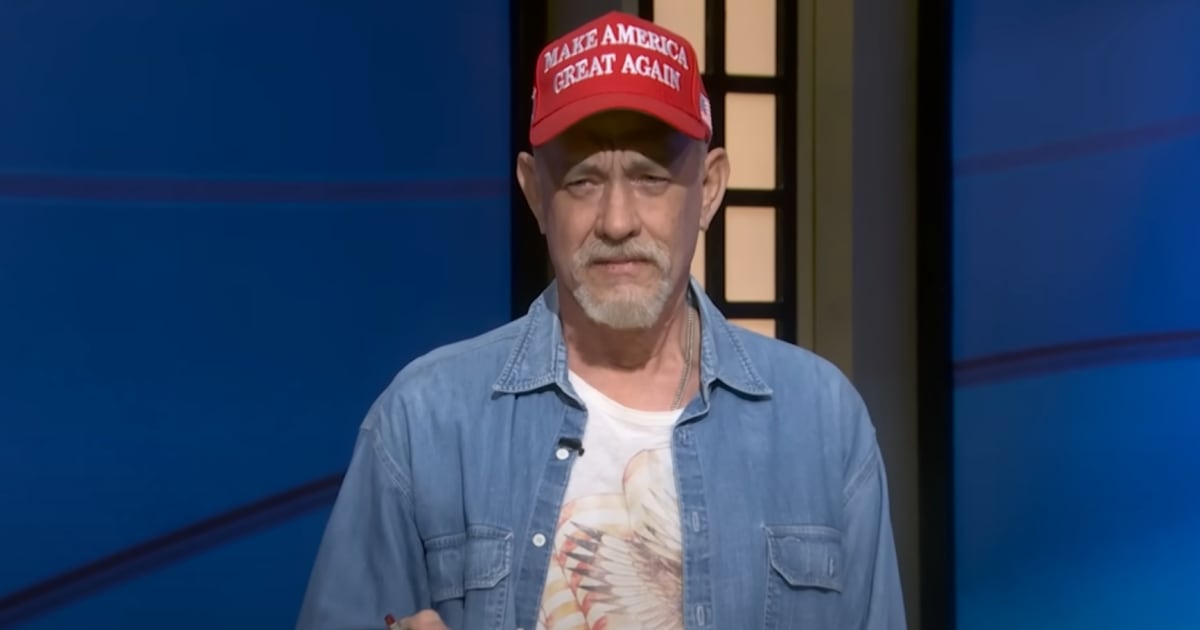In an age when even the supposedly toughest Mafia bosses and cartel kingpins turn rat and wear a wire, there remains one notable exception.

Her name is Monica Lewinsky. She has put herself back in the news with an article in Vanity Fair and the result has been a rehashing of the semen stain on the infamous blue dress and other sordid details from her fling with President Bill Clinton when she was a White House intern.
What is forgotten now and was generally overlooked back then is how she responded on Jan. 16, 1998, when she went to meet her supposed friend Linda Tripp at a food court outside Washington, D.C. only to discover it was a set-up. She was surprised by two FBI agents who flashed their badges and whisked her off to a nearby hotel room, where a prosecutor was waiting.
“I was so scared,” Lewinsky later recalled to the grand jury. “It was so incredibly frightening.”
The prosecutor made a threat such has caused any number of gangsters and dope peddlers to fold.
“I could go to jail for 27 years,” Lewinsky remembered. “They were going to charge me with perjury and obstruction of justice and subornation of perjury and witness tampering and something else.”
The prosecutor and the agents informed her there was only one way for her to escape more years in prison than she had been alive.
“They told me they wanted me to cooperate. I asked them what cooperating meant, entailed, and they told me that... I’d have to agree to be debriefed and that I’d have to place calls or wear a wire," Lewinsky said.
But unlike a gangster who ultimately cares only for himself, she placed someone else’s interests ahead of her own. It might have even been love.
“I couldn’t imagine doing that to the president,” she later said.
No matter how scared she was, no matter how hard they pressured her, she continued to resist.
“I just cried for a long time,” she remembered. “They just sort of sat there... Maybe two hours or so.”
Her captors increased the pressure.
“They kept saying there was a time constraint, I had to make a decision,” she said.
More prosecutors and agents appeared.
“The room was crowded and [a prosecutor] was saying to me, ‘You know, you have to make a decision.’ I had wanted to call my mom, they weren’t going to let me call my attorney, so I just—I wanted to call my mom.”
A prosecutor scoffed.
“[He] said, ‘You’re 24, you’re smart, you’re old enough. You don’t need to call your mommy,’ “ Lewinsky recalled.
The prosecutor would have done better not to mock her.
“And then I said, ‘Well, I’m letting you know that I’m leaning towards not cooperating….’” she remembered.
The prosecutor responded with another threat.
“And so then they told me that I should know that they were planning to prosecute my mom,” she later testified.
Lewinsky remained adamant about not cooperating. The prosecutor finally allowed her to call her mother.
“I was hysterical. She didn’t understand what I was saying,” Lewinsky remembered. “I was screaming that, you know, ‘They want me to cooperate and I don’t want to cooperate, don’t make me cooperate, don’t make me do this.'"
The mother said she was catching a train down from New York. Lewinsky waited hour after hour for her to arrive. More prosecutors and agents filled the room in the meantime.
“I read Psalm 21 [The king shall rejoice in your strength, O Lord/ how greatly shall he rejoice in your salvation/ You have given him his heart’s desire/ and have not denied the request of his lips.] about a million times,” she later told the grand jury. “I didn’t want to cooperate.”
The surprise at the food court and the pressure in the hotel room to cooperate came to the grand jury’s attention only at the end of her testimony, when the prosecutor was done questioning her. The grand jurors then got a chance to pose questions and one asked about her first encounter with the authorities.
“Can you tell us a little bit about how that happened?” the juror asked.
The prosecutor sought to deflect this line of questioning.
“Maybe if I could ask, ‘What areas do you want to get into?’ Because there’s, you know, many hours of activity,” the prosecutor said.
“We want to know about that day,” the juror said.
“We really want to know about that day,” another juror said.
Lewinsky told them, beginning with Tripp meeting her as arranged at the food court at the Pentagon Mall, but joined by two FBI agents.
“ During this time in the hotel with them, did you feel threatened?” a grand juror asked.
“Yes,” Lewinsky replied.
“Did you feel that they had set a trap?”
“I didn’t understand why they had to trick me into coming there… That was just so frightening.”
As frightening as it had been, she had refused to record a conversation with the man the prosecutors were so eager to get on tape. Her mother had finally arrived after eight hours and contacted a lawyer. She had made no damning tapes of President Clinton and the most the prosecutors could do was subpoena her to testify before the grand jury.
“We wanted to offer you a bouquet of good wishes that includes luck, success, happiness, and blessings,” the foreperson told this standup gal at the end.
Back in 1934, the gangster John Dillinger was gunned down after the FBI used a threat of deportation to pressure a woman into cooperating. She was wearing an orange dress when the agents moved in, but it looked red under the lights. The Woman in Red became a figure of betrayal.
As Lewinsky now again recedes from public attention, we can think of the Woman in Blue as a figure of loyalty in an age of rats.




